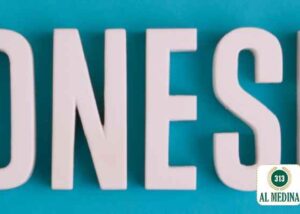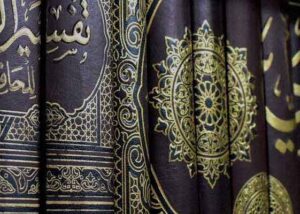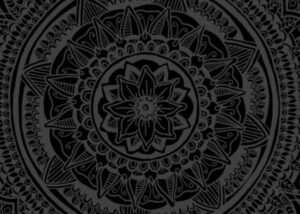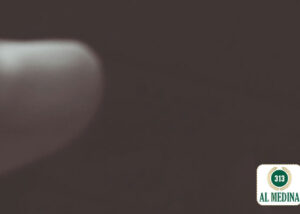Does cutting nails on Wednesday cause leprosy? There is a post on social media saying this mentioning a Hadith and a dream too.
Quran
Hadith
Islamic Text
بِسْمِ اللَّهِ الرَّحْمَنِ الرَّحِيمِ
In the Name of Allah Most Merciful Most Kind
Short Answer
No, it is not true that cutting nails on Wednesday causes leprosy. There is no authentic Hadith establishing anything like this. People who are promoting this have not established it from any strong Hadith reference. Further, they have also used dreams to justify it. This is unacceptable. You cannot use people’s dreams to establish religious matters. Only the dreams of Prophets (peace be upon them) are revelation and thus proof.
Hadith
عَنْ أَبِي هُرَيْرَةَ قَالَ: قَالَ رَسُولُ اللهِ صَلَّى اللهُ عَلَيْهِ وَسَلَّمَ: كَفَى بِالْمَرْءِ كَذِبًا أَنْ يُحَدِّثَ بِكُلِّ مَا سَمِعَ
(Sayidina) Abu Hurairah narrated that the Prophet ﷺ said: It is enough of a lie for a person to narrate everything that he hears. (Sahih Muslim, Chapter 3, Prohibition of Narrating Everything One Hears).
Caution with Hadith
In the Hadith above, our beloved Prophet ﷺ warns against narrating without verification. Meaning, a person must authenticate a statement or incident before accepting it or spreading it. This is especially important with regards to the statements and actions of our blessed Prophet ﷺ. Therefore, prior to claiming that our Mubarak Prophet ﷺ warned against cutting nails on Wednesday, the Hadith must be correctly verified.
There is a message being spread on social media, in which it is claimed that the Prophet ﷺ warned that cutting nails on Wednesday causes leprosy. The reference provided is that of a relatively recent Fiqh book. When the individual in question was asked to reference more accurately, he referred people to the same reference already provided. This truly is shocking for a person who is supposed to have knowledge of Hadith.
Even novices in the science know that Hadith have to be referenced to original Hadith works. This is because such works must have chains going back to the beloved Prophet ﷺ. To reference a Hadith to a recent Fiqh work and deem that to be sufficient, is astonishing. It is due to such behaviour that many Muslims are unable to differentiate between an authentic and inauthentic Hadith narration. If this is the state of the leaders, then what is to be expected from their congregations?
Imams of Hadith
وَقَالَ ابْنُ الْجَوْزِيِّ: مَا أَحْسَنَ قَوْلَ الْقَائِلِ: إِذَا رَأَيْتَ الْحَدِيثَ يُبَايِنُ الْمَعْقُولَ أَوْ يُخَالِفُ الْمَنْقُولَ أَوْ يُنَاقِضُ الْأُصُولَ فَاعْلَمْ أَنَّهُ مَوْضُوعٌ. قَالَ: وَمَعْنَى مُنَاقَضَتِهِ لِلْأُصُولِ: أَنْ يَكُونَ خَارِجًا، عَنْ دَوَاوِينِ الْإِسْلَامِ مِنَ الْمَسَانِيدِ وَالْكُتُبِ الْمَشْهُورَةِ. (تدريب الراوي)
(Imam) Ibn al-Jowzi said, how correct is the statement of the one who said: If you see a Hadith opposing rationality, contradicting transmission, or undermining the sources, then know that it is fabricated. He said: And the meaning of ‘undermining the sources’ is that it is outside of the Islamic works of transmission (Isnad) and recognised books. (Imam Jalal al-Deen al-Sayuti, Tadreeb al-Raawi).
وَذُكِرَ عَنْ الْحَافِظِ أَبِي بَكْرٍ الْبَيْهَقِيّ أَنَّ الْأَحَادِيثَ الَّتِي قَدْ صَحَّتْ أَوْ وَقَعَتْ بَيْنَ الصِّحَّةِ وَالسَّقَمِ قَدْ دُوِّنَتْ وَكُتِبَتْ فِي الْجَوَامِعِ الَّتِي جَمَعَهَا أَئِمَّةُ الْحَدِيثِ وَلَا يَجُوزُ أَنْ يَذْهَبَ شَيْءٌ مِنْهَا عَلَى جَمِيعِهِمْ وَإِنْ جَازَ أَنْ يَذْهَبَ عَلَى بَعْضِهِمْ لِضَمَانِ صَاحِبِ الشَّرِيعَةِ حِفْظَهَا فَمَنْ جَاءَ الْيَوْمَ بِحَدِيثٍ لَا يُوجَدُ عِنْدَ جَمِيعِهِمْ لَمْ يُقْبَلْ مِنْهُ. (كشف الأسرار شرح أصول البزدوي)
It is reported that Imam al-Bayhaqi said, “The Hadith that have been considered authentic (Sahih) or between authentic and weak have indeed been recorded in the major books of Hadith. The imams of Hadith have collected them so it is not possible for a Hadith to be missing from all of them. It is possible that some of the imams missed out certain Hadith but for all of them to miss out a (sound) Hadith is not possible because the One who revealed the Shariah (Allah, Most High) has taken it upon Himself to preserve the shariah. For this reason, if somebody brings a Hadith today which is not present in any of those recognised books, it is not going to be accepted.” (Imam Ala al-Din al-Bukhari, Kashf al-Asraar Sharh Usool al-Bazdawi, Vol. 3, p49).
In the Nusoos (texts) above, Imams of Hadith explain how narrations must be established in the original Hadith works. This really should not be news to any person of knowledge. It is absurd to think that anything other than this would be acceptable.
If you want to authenticate a Hadith narration to the beloved Prophet ﷺ then of course you need to trace it to an original source with a complete chain (Sanad). Thereafter, the authenticity can be analysed.
Misplaced outrage
Another very troubling aspect of this discussion is that the same people who are incredibly reckless with attributions to the Prophet ﷺ, seem to be extremely diligent when it comes to their scholars.
As such, they have no problem with attributing a prohibition upon cutting nails on Wednesday to our beloved Prophet ﷺ without correct referencing. However, when they are pressed for a sound reference, they ignore it. Despite that, if a scholar they like is misquoted, they are outraged. They repeatedly denounce such misquotes publicly. Likewise, they demand a retraction or thorough referencing.
Are the words of the Prophet ﷺ more important or are the words of their scholars more important? Where is the outrage on behalf of our Prophet ﷺ?
These same brothers regularly chant their readiness to defend the Prophet ﷺ. However, in my experience with such people, this is all dishonest. They are zealous in defending their sect, group or cult. As a result, they will defend the Prophet ﷺ in that context. Despite that, they will not do so when it negatively impacts their own group (see the following video for clear examples of extreme sectarians).
ثمَّ قَالَ: هَذَا حَدِيث مَوْضُوع على رَسُول الله صلى الله عَلَيْهِ وَسلم، وَهُوَ من أقبح الموضوعات وأبردها، وَفِي سَنَده مَجْهُولُونَ ومتروكون وضعفاء. (عمدة القاري شرح صحيح البخاري)
Then he (Imam Ibn al-Jawzi) said: This Hadith is fabricated against the Messenger of Allah ﷺ. It is one of the ugliest and worst fabrications. In the chain there are unknown people, abandoned narrators and weak individuals. (Imam Badr al-Deen al-Ayni, Umdatu al-Qari).
وما يعزى من النظم في قص الأظفار لعلي وغيره باطل كظهور الأكلة في قص يوم السبت وذهاب البركة في الأحد وحصول العز والجاه في الاثنين والهلكة في الثلاثاء وسوء الأخلاق في الأربعاء والغنى في الخميس والحلم والعلم في الجمعة. (حاشية الطحطاوي على مراقي الفلاح شرح نور الإيضاح)
That which has been attributed to Ali and others regarding the cutting of nails is false (Batil). Such as the appearance of al-Aklah if you cut on Saturday. The disappearance of blessing on Sunday. The attainment of strength and prestige on Monday. Al-Halakah on Tuesday. Bad character on Wednesday. Wealth on Thursday. Forbearance and knowledge on Friday. (Imam al-Tahtawi, Haashiyah ala Maraaqi al-Falah).
Hanafi Scholars
In the Nusoos (texts) above, we find Hanafi Imams speaking against narrations about cutting nails on Wednesday. Imam al-Ayni quoted Ibn al-Jawzi speaking about the impact of cutting fingernails on different days. He said the narration is fabricated. As for Imam al-Tahtawi, he refers to such narrations as Batil (baseless).
Although they have not addressed the Hadith about leprosy, it may be argued that they would have mentioned that narration if it had been sound. This is because it certainly was an opportune moment to do so.
In any case, the onus must be placed on people claiming the leprosy Hadith is established to prove it. If they cannot prove it, then they must clarify their error publicly due to the words of the Prophet ﷺ are sacred. Therefore, Muslims must protect them and not allow them to be misrepresented.
Using dreams as proof
لا أنه يقطع بأمر المنام، ولا أن تبطل بمثله سُنَّة ثبتت، ولا يُثبت به سُنَّة لم تثبت بإجماع من العلماء. (إِكمَالُ المُعْلِمِ بفَوَائِدِ مُسْلِم)
That which is seen in a dream is not considered to be a matter of certainty. And it does not invalidate a Sunnah, nor does it establish a Sunnah. This is according to the consensus of the scholars. (Qadi Iyad, Sharh Sahih Muslim, Vol. 1, p153).
هَذَا الَّذِي ذَكَرْنَاهُ مُخَالِفًا لِقَوْلِهِ صَلَّى اللَّهُ عَلَيْهِ وَسَلَّمَ مَنْ رَآنِي فِي الْمَنَامِ فَقَدْ رَآنِي فَإِنَّ مَعْنَى الْحَدِيثِ أَنَّ رُؤْيَتَهُ صَحِيحَةٌ وَلَيْسَتْ مِنْ أَضْغَاثِ الْأَحْلَامِ وَتَلْبِيسِ الشَّيْطَانِ، وَلَكِنْ لَا يَجُوزُ إِثْبَاتُ حُكْمٍ شَرْعِيٍّ بِهِ. (المنهاج شرح صحيح مسلم بن الحجاج)
What has been mentioned does not contradict the words of the Prophet ﷺ: Whoever sees me in a dream has truly seen me. The Hadith means that the vision was true and was not the misguidance of Shaytaan or a false dream. However, it is not permitted to establish a legal ruling (Hukm Shari) using a dream. (Imam Nawawi, Sharh Sahih Muslim, Vol. 1, p115).
In the Nusoos (texts) above, we find two of the great Imams of Ahl al-Sunnah clarifying that dreams cannot be used to establish religious matters.
In the first Nass, we find Qadi Iyad mentioning that it is not permitted to establish or negate a Sunnah. He further clarifies that this is a matter of scholarly consensus. This being the case, why are people promoting the prohibition of cutting nails on Wednesday using a dream?
Additionally, Imam al-Nawawi then explained that even seeing the Prophet ﷺ in a dream does not allow one to establish a legal ruling. This is despite it being a great blessing and gift from Allah (Most High). So how can people who are students of Islamic law make such blatant errors? Evidently, it is due to a lack of research and simply forwarding of information received.
This is not the role of a scholar or a serious student. Rather than forwarding everything one comes across, a person of learning is supposed to check and verify. As otherwise, he is no different to a Google search. Rather, he is inferior to it. This is because a Google search will yield more results.
Conclusion
There is so much wrong with the social media post saying cutting nails on Wednesday causes leprosy, it would take an entire lesson to unravel the misguidance. However, I will reiterate three significant issues.
Firstly, the Hadith is not referenced to original sources. Nor has it been authenticated. Secondly, a dream has been used as evidence. Thirdly, classical works of the Hanafi Madhab have not been cited and the ruling seems to contradict the Madhab.
And Allah Most High Knows Best.
–Answered by Shaykh Noorud-deen Rashid (15.04.24)






